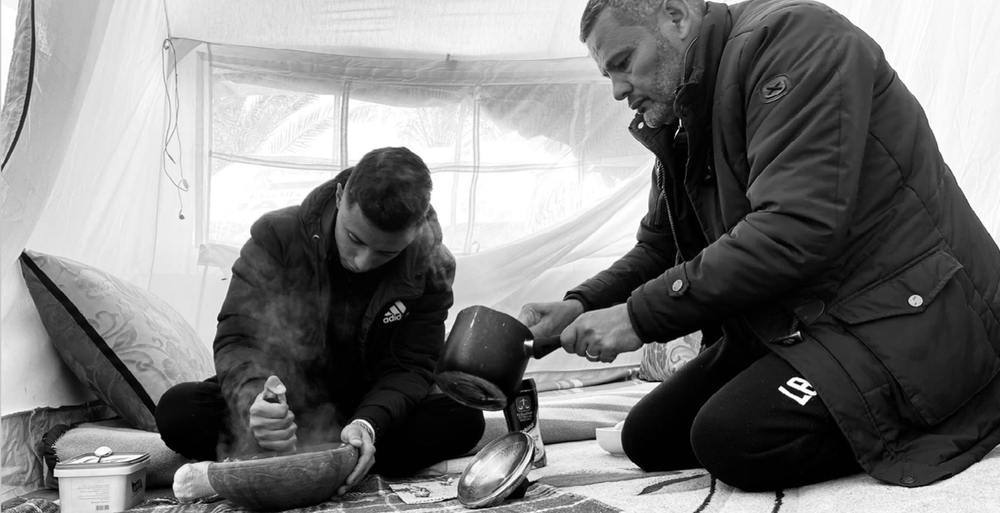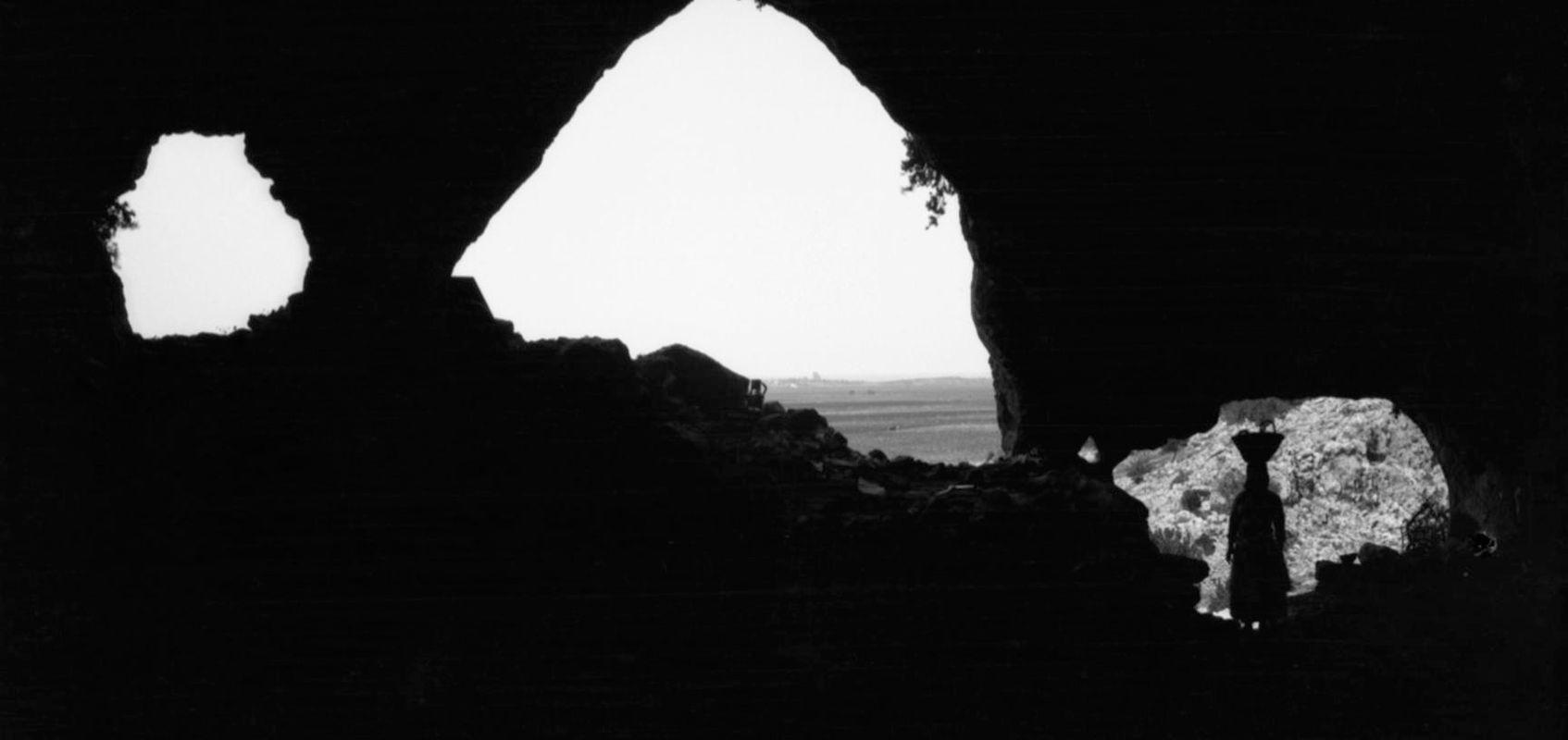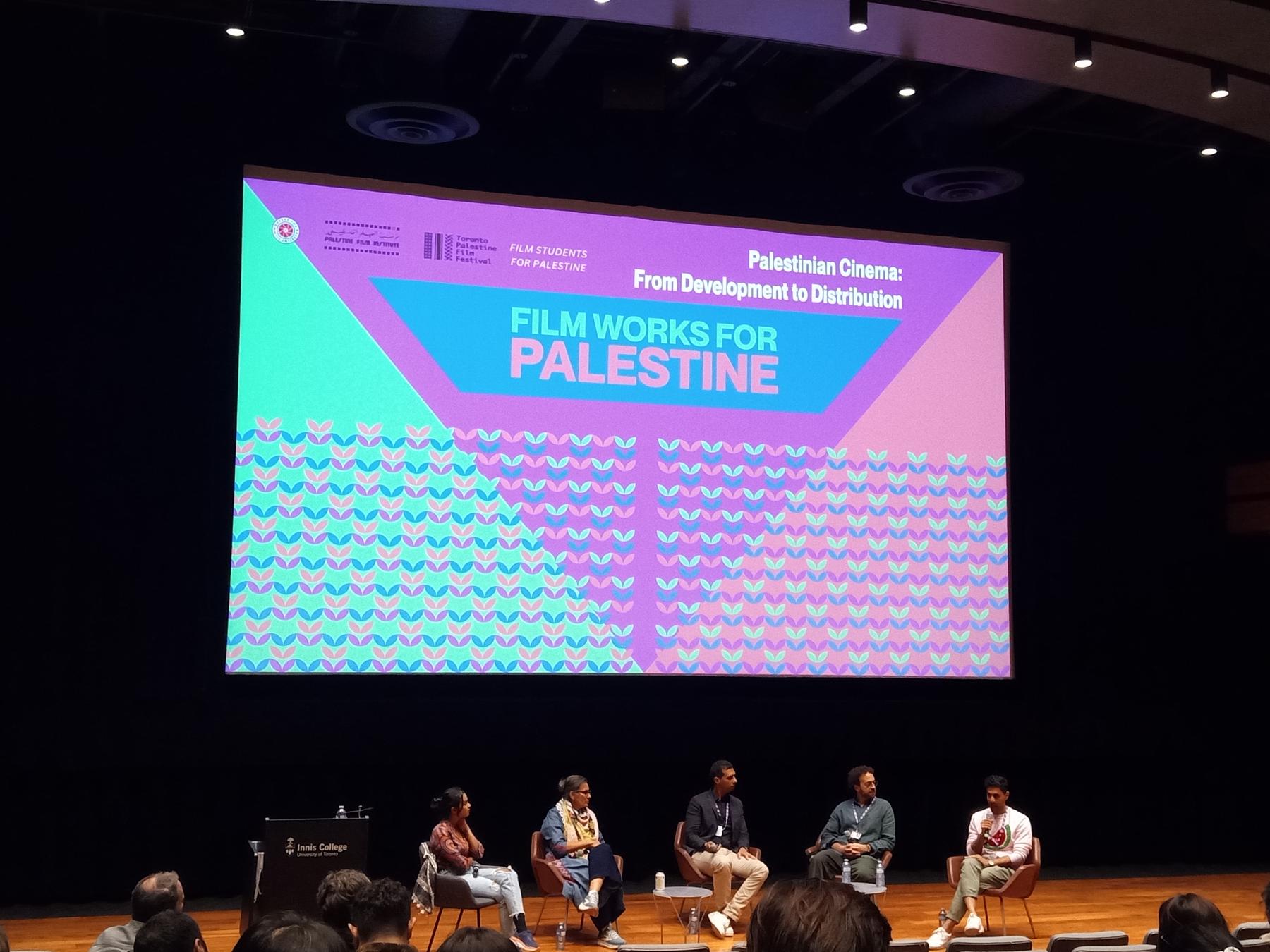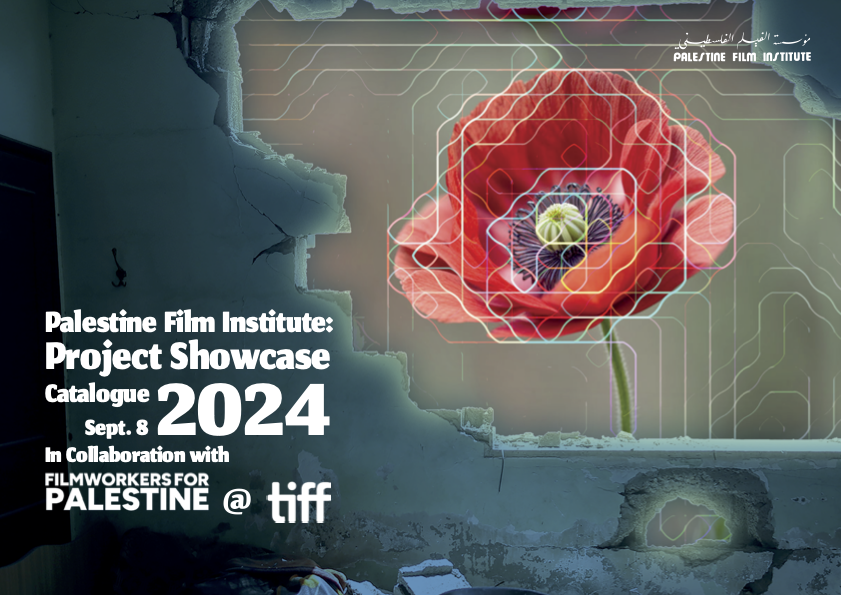Film Works for Palestine: Solidarity Within and Beyond the Industry
Last month, Film Workers for Palestine (FWP), Toronto Palestine Film Festival (TPFF), Palestine Film Institute (PFI) and Film Students 4 Palestine (FS4P) co-presented the three-day parallel programme Film Works for Palestine at the Innis Town Hall, University of Toronto. The event was held simultaneously alongside the Toronto International Film Festival (TIFF) to create an activist space for film workers and cinema enthusiasts committed to the global struggle for Palestinian liberation. As part of the programme, the Palestine Film Institute organised an industry showcase featuring the pitches of seven feature documentary projects in various stages of development and production. They sought to generate support for the filmmakers by connecting them with festival programmers, co-producers, potential industry collaborators and the general audience attending TIFF.

Scene from Marwah Jabara Tibi's Goal (Source: PFI)
Films in development include Marwah Jabara Tibi’s Goal, which follows the lives of four junior Palestinian footballers as they pursue their dream of playing for the Palestinian national team and participating in the AFC U-20 Asian Cup qualifiers in 2025. After the Israel Defense Force launched their ongoing genocidal offensive last year, the football stadiums turned into rubble or were converted into field hospitals, mass graves and refugee camps. The filmmaker relies on mobile phone footage of the footballers to document how they struggle to secure their necessities for daily survival while keeping their passion for football alive. Tibi, an award-winning filmmaker with several years of professional experience, seeks financiers, co-producers, broadcasters and impact campaign producers to develop her project.

Scene from Salim Abu Jabal's Yusra (Source: PFI)
Another project by Salim Abu Jabal, titled Yusra, uses the documentary medium as a methodological tool for historical research. When Jabal discovered a photograph from the 1930s featuring a Palestinian woman and a British archaeologist, he was intrigued by the name “Yusra” written on the back of the image. It appears to be the same Yusra whom archaeologists credit with discovering the first Neanderthal skeleton in the Middle East. Yet, little is known about her—not even her full name. Jabal contacted historians to investigate her life and identity to no avail. However, when he published an article about Yusra, he started receiving unknown calls from Palestinian families located in Iraq, Jordan, and elsewhere, claiming that Yusra was their grandmother. Jabal uses archival documents and images from the 1930s, anecdotal stories from potential descendants and interviews in his film to explore a story of identity and cultural heritage through the elusive figure of Yusra. He is seeking broadcasters, pre-sales agents and gap funding to complete this work.

Image cover of Regash and Charlotte Knowles' Palestine Comedy Club (Source: PFI)
Other riveting projects in the showcase included The Rise (Weaam Williams), Palestine Comedy Club (Regash and Charlotte Knowles), Jenin & the Nakba Between Us (Serene Husni), State of Passion (Carol Mansour) and Another Day Shall Come (Aida Kaddan). PFI has mentored and presented these projects in pitching forums at the International Documentary Film Festival Amsterdam (IDFA), Cannes, Sheffield DocFest and Durban Film Mart. Its website also hosts the details of these projects with contact information in case people willing to support them need to reach out to the production.

Panel Discussion at the event. (Image courtesy of the author)
A panel discussion titled “Palestinian Cinema: From Development to Distribution” attempted to address the ideological and logistical struggle Palestinian filmmakers face in today’s film markets. The panel involved Munir Atalla and Hamza Ali from Watermelon Pictures, Salma Abu Ayyash from Palestine Film Institute and independent filmmaker Razi Jafri. Film critic Devika Girish’s moderation steered questions around the different modes of strategising resistance through the production and distribution of cinema. Quoting a dialogue from Azza El-Hassan’s documentary Kings and Extras (2004), which played on the event’s second day, Girish recalled the character addressing the filmmaker who was looking for the lost archives of the Palestine Liberation Organization (PLO) Film Unit: “Why look for films now when there is so much destruction around?”
It is a perplexing yet productive question. Liberatory cinema is about building communities of resistance, mobilising movements for social justice and building alternative infrastructures of production, dissemination and discussion. Watermelon Pictures, a Palestinian-owned film label, and the PFI are precisely geared toward such ends. Such organisations seek to not only create a subsidiary market but also to find ways of decolonising the corporate-fuelled film festival industry and the appendages of prestige, premieres, fame, star economy, etc., that come with it. Film festival circuits and their associated programmes of grants and resources for filmmakers heavily rely on popular marketing hooks to build their viewership pools. They consider factors concerning the supposed ‘universality’ of a film’s emotional appeal or the ‘accessibility’ of a story hook. But, as the panelists in the discussion agreed at one point, it is also urgent to understand the difference between what the market wants to watch about Palestine and how Palestinians seek to activate the audience.

PFI Industry Showcase poster. (Source: PFI)
For film workers, production and distribution houses, marketers, funding agencies, cinephiles and all those who encounter the market and are committed to the Palestinian cause, it is imperative to remember the “Industry Protocol in Times of Genocide” statement published by the Palestine Film Institute. As it states, we must constantly assess the implications of our professional affiliations with institutions and “implement due diligence when considering collaborating, endorsing, or severing ties with them.” We must investigate whether our affiliated institutions have contributed to perpetrating injustice on Palestinians, either by active practice or silent complicity.
To learn more about programmes as part of Film Works for Palestine, please read Santasil Mallik’s essay on “Gaza Lives”, which sought to honour Palestinian writers and artists through forms of remembrance.
To learn more about reflections on the ongoing Palestinian genocide, read Kamayani Sharma’s essay on three films foreground how settler colonialism impacts childhoods in Palestine, Sudha Padmaja Francis’ review of Hany Abu-Assad’s Omar (2013), Anoushka Antonnette Mathews’ essay on Abdel Salam Shehada’s Ila Aby (To My Father, 2008) and Kshiraja’s essay on Yousef Srouji’s Three Promises (2023).




